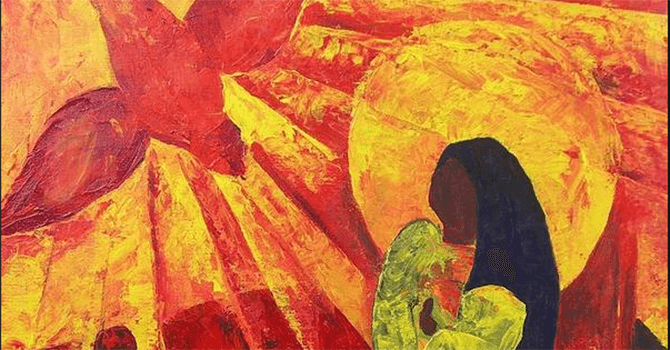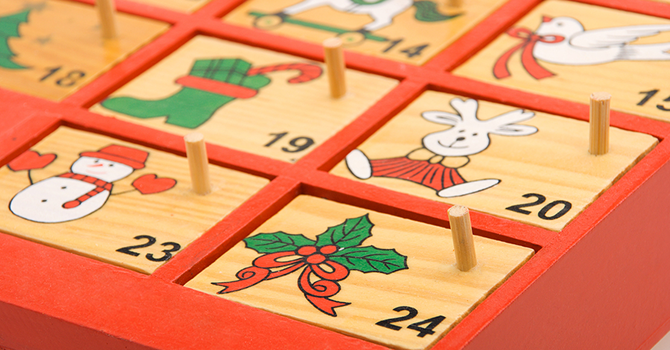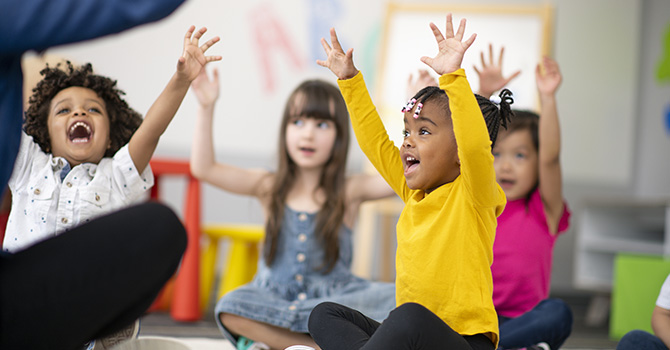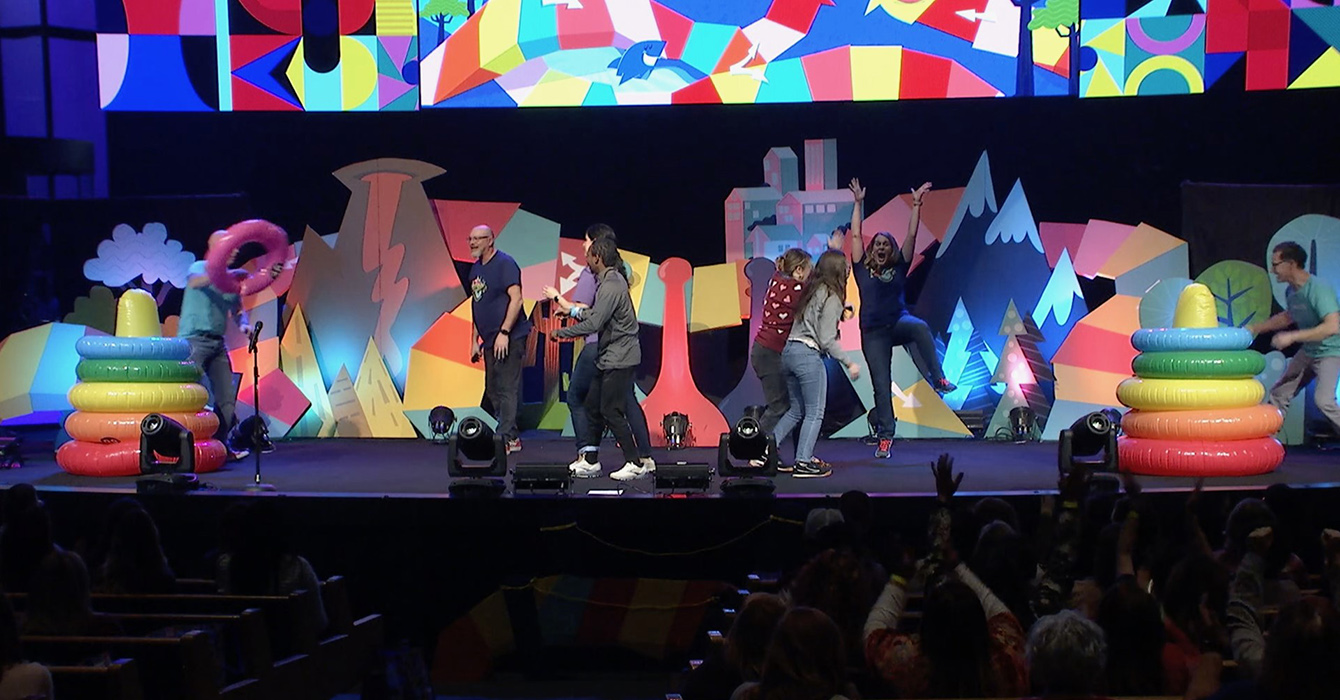As the first Epiphany was for the magi, this Epiphany, for me, is about children. Children call us out of our worries and websites and back to the world — to reassemble a Lego guy, to chop an apple, to respond to the outstretched arms and the trusting-toddler command, “Up!”
To do the hard and necessary — and deeply honoring — work of loving another, vulnerable human being.
Over the last two years, I’ve been taking care of our granddaughter Lila Elizabeth three mornings a week. While she brings me much joy and hope, I am also a vigilant oma. I anticipate; I hover; I reach out to catch or steady this tender and tottering little person.
While Lila is strong and sturdy and can climb anything, she also seems fragile, vulnerable and fresh from God. Heaven forbid that when my daughter comes to collect her, Lila is sporting a new Band-Aid or bruise! When I dash away to get my coffee, I call to my husband, “Keep your eyes on the baby!”
Perhaps because I’m in this child-minding season, I’ve noticed that the wise men in Matthew 2 also keep their eyes on the baby. Surrounded by political plots, desert dangers and ambitious autocrats like Herod, they never lose their focus. They observe “his star at its rising” and they follow it diligently until it stops over the place where the child is.
It’s never about power for the magi; they simply want to honor the Christ child. They are “overwhelmed with joy” when the star stops. These kings bow down, worship and adore the baby, giving him gifts and great honor. He is the sole focus of their long and, at times, perilous journey.
But the Epiphany story in Matthew reveals and makes manifest not only the light of the star and the glorious baby but the fear as well. After their visit with King Herod, the wise men feel fear, a fear so visceral that it sends them home a different way.
November’s presidential election has propelled many of us into Epiphany rattled and with a sense of uncertainty. I fear the future and what it may hold for my children, my grandchildren and others more vulnerable than my own family.
I have been practicing grounding and cherishing exercises: Name five things you see, four things you touch, three things you hear, two things you smell, one thing you taste.
But focusing on my granddaughter is the best grounding practice. She centers me, calls me to life — out of my head and back into the world. She points to the box of Cheerios and says, “Lila! Bowl!” Her toddler needs are immediate and fundamental — a hug, a new diaper, her favorite book, a nap.
I hold her hand while she edges confidently along the balance beam my son-in-law made her. Little does she imagine what might happen if she falls!
Just so, Epiphany grounds us, revealing, by the light of the star, a baby — the Christ child — on which to laser our focus for the year ahead, despite its uncertainties, balance beams and Herods.
While the internet overflows with essays, blogs and wise quotes about how to frame 2025, Epiphany reminds us simply to keep our eyes on the baby, as we return to the breath when our minds wander during a meditation. The baby is the Savior of the world, the King of love, the resurrection, the light.
Newborn babies require quiet, safety, stillness and loving arms that hold, cherish and marvel at their perfection. Babies command easily our complete attention, moments when we are “undoing” instead of doing.
But “keeping our eyes on the baby” doesn’t mean insulating ourselves in our warm homes and loving families. Just the opposite.
Herod was infuriated by the tricks of the wise men, so he “sent and killed all the children in and around Bethlehem who were two years old or under.” In our times, the vulnerability of children continues. UNICEF reports, “Every 4 minutes, somewhere in the world, a child is killed by an act of violence.”
And further: “More than 460 million children are living in, or fleeing from, devastating violence in places including the Democratic Republic of the Congo, Haiti, Myanmar, Palestine, Sudan, and Ukraine. Meanwhile, nearly half the world’s children live in countries that are at extremely high risk from the impacts of climate change.”
Children in our own country face dangers including food insecurity, loss of homes, gun violence, lack of health care, trafficking, migration turmoil, air and water degradation, racism, and sexual violence.
The wise men knew they couldn’t solve all the evils of the world or dethrone Herod, but they could love the baby, who was born king of the Jews and a poor and endangered refugee. They could bring him gifts fit for a king and protect him with words and actions.
Like the magi, we have a mandate to seek out and support the most vulnerable, who are often children. They will need a loving tribe this year more than ever. What gifts can we bring them in the name of the baby Jesus?
Think locally: Love the children in your line of vision — family, neighbors, friends. Knit a warm hat for an unhoused child; donate supplies to your local schools or food to your local food pantry; babysit for an exhausted neighbor.
Then think beyond your neighborhood: Use your money and time to support policies that improve young lives. For example, contact elected officials and urge them to support electric school buses that reduce the toxic fumes children breathe when they ride to and from school. Or register your objection to the forced separation of parents from children when they arrive in this country and to the imprisoning of children in cages.
Keeping our eyes on the baby Jesus reminds us to place less emphasis on fear and more emphasis on the hopeful future God desires for us.
For now, I will follow behind Lila when we take our walks, still hovering in case she falls. I will marvel at the confident way she trots down the path, open to the fresh world and all of its possibilities.
But “keeping our eyes on the baby” doesn’t mean insulating ourselves in our warm homes and loving families. Just the opposite.























